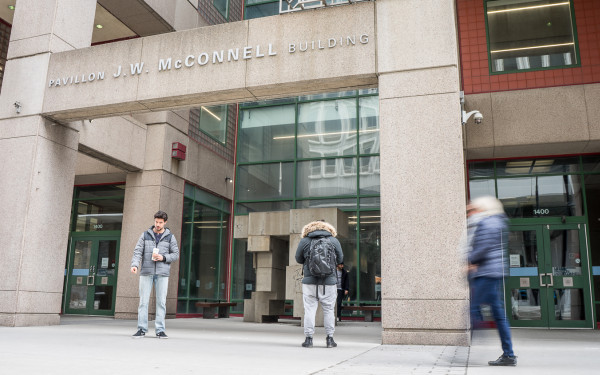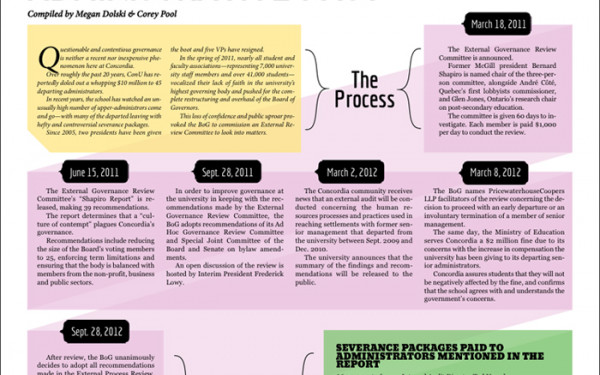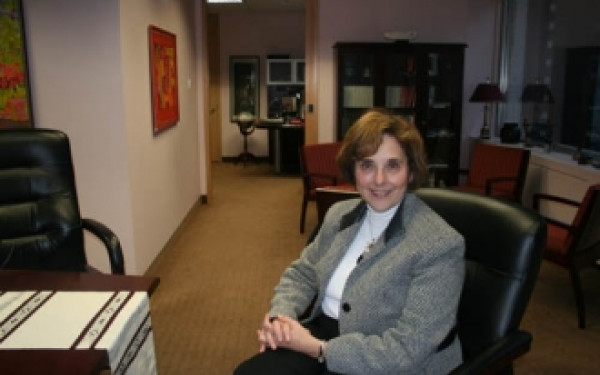Snippets From Senate
On Nov. 2 the Senate, Concordia’s highest academic body, met for their regular monthly meeting. Here’s what you should know:
Academic Plan Update
The implementation of Concordia’s recently adopted academic plan is slowly, surely—and slightly confusedly—moving forward.
The plan, proposed by former provost David Graham, was unanimously passed at a Board of Governors meeting on Jan. 12, after it received the go-ahead from Senate.
Since the plan’s approval, Graham has left his position as provost, and been replaced in the interim by Lisa Ostiguy—who by extension has taken over the responsibility of seeing the plan through, along with the Academic Planning and Priorities Committee.
In December 2010, Senate passed a motion to create a standing committee to monitor the implementation of the academic plan, known as the Academic Plan Coordination Committee.
The APPC committee held its first meeting on Oct. 11 to discuss the role and composition of the APCC, as per Senate’s request. In its report, released Friday, a request was made to have the creation of such a committee deferred until next September.
In lieu, Ostiguy’s updates concerning the academic plan will become a standing section on the agenda, until a standing committee is formed next September.
Despite confusion surrounding procedural technicalities, Ostiguy presented Senate with an update on the plan and initiatives currently in the works.
Projects mentioned included increased library funding, the development of an “accessibility policy,” launching an undergraduate research initiative and looking into how the university can most effectively make use of e-learning.
Ongoing efforts towards graduate student recruitment and preliminary plans for the creation of a writing and math centre for students were also mentioned.
CIWESS gets Senate Recognition
Senate voted in favour of the official creation of the Concordia Institute for Water, Energy and Sustainable Systems.
According to its mission statement, CIWESS aims to “nurture multidisciplinary research and training in the design of systems, solutions and technologies for water, energy and resource conservation.”
The institute’s focus lies in developing projects working towards energy-efficient water supply and sustainable water quality. Its goals include utilizing renewable energy resources and new tools, as well as ensuring the public is informed of developments concerning public policy related to the usage and quality of water in both rural and urban areas.
The institute, which has been in the works for eight years, is based in the faculty of Engineering and Computer Science, but extends its scope across internal boundaries and involves the faculties of Arts and Sciences, Fine Arts and the John Molson School of Business.
When presenting the institute to senate, CIWESS Program Director Catherine Mulligan explained that it strives to facilitate student mobility.
In addition, working across Concordia’s separate faculties, CIWESS places a heightened value on fostering and forming relationships with other academic institutions both nationally and internationally, as well as with government and independent initiatives related to the field.
“We want to work very strongly with the industry,” said Mulligan. “We want to train students to work, which means that internships will be integral.”
Mulligan says these opportunities will not be restricted to graduate students; some will be made accessible to undergraduates as well.
In addition to receiving funding from Concordia, Mulligan listed a number of organizations that have already offered the institute financial support including: Hydro-Québec, Golder Associates and Engineers Without Borders, among others.
Senate in Short
Concordia President Alan Shepard said that within 36 hours of receiving instructions from the government pertaining to tuition reimbursements, the school was returning funds to students.
He said it’s better for the school if students can accept school credit versus a cheque, since producing a cheque for every student would cost the school a not-insignificant amount.
Political science professor and Concordia University Part-Time Faculty Association President Maria Peluso wants to see consistency within the Fine Arts faculty regarding how many class-time contact hours equate to a three-credit course.
“This is all so out of whack,” she said. “There is no linear understanding.”
Department heads responded to these concerns, citing a wide range of disciplines as a main difficulty in coming to a standardized system—but they assured Peluso that they are working on coming up with reasonable guidelines.
General consensus from multiple senators is that Hospitality Concordia is in fact, not that hospitable to deal with internally—and also expensive.
Concordia VP Services Roger Côté has heard the concerns, however, and is happy to work towards changing that. Côté said that detailed information on options can be made available regarding space available for events, as well as logistical and booking costs.
Questions were raised concerning the Azrieli Institute of Israel—is the word “Palestine” on the website or leaflet? Is the research guided by potentially biased sources of funding?
Political Science chair and co-director of the institute Csaba Nikolenyi assured Senate, “This is a research institute and not a political institution.” Nikolenyi said that its funding came through an agreement that allows no interference between the donor and the research findings.
And yes, the word “Palestine” does appear on the website.
Concordia is addressing issues related to its international student homestays. A working group has been created to look into housing needs and support international students who have been dealing with poor living conditions. The university is also conducting a review of its Chinese student recruitment program.

_900_600_90.jpg)





4_600_375_90_s_c1.jpg)